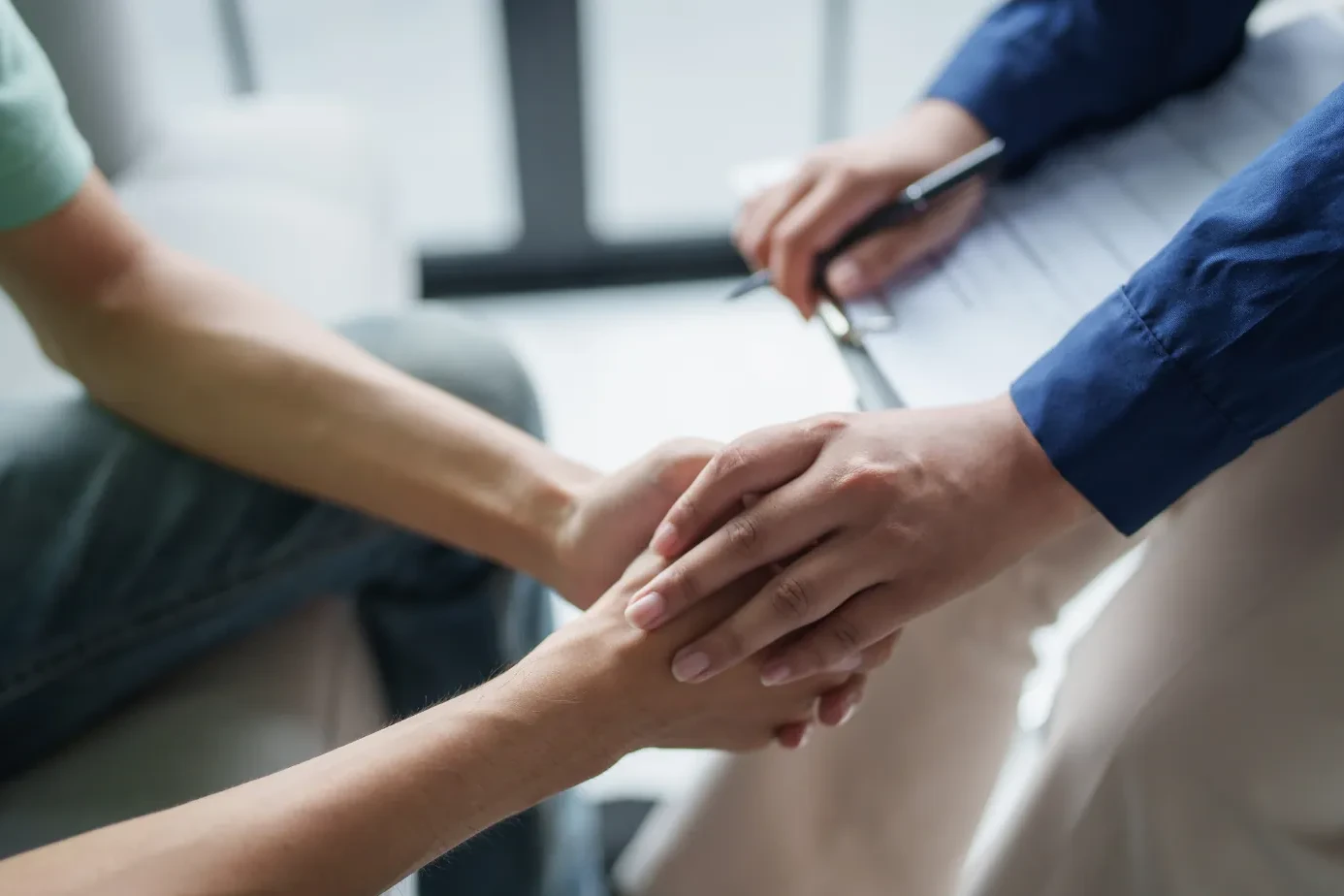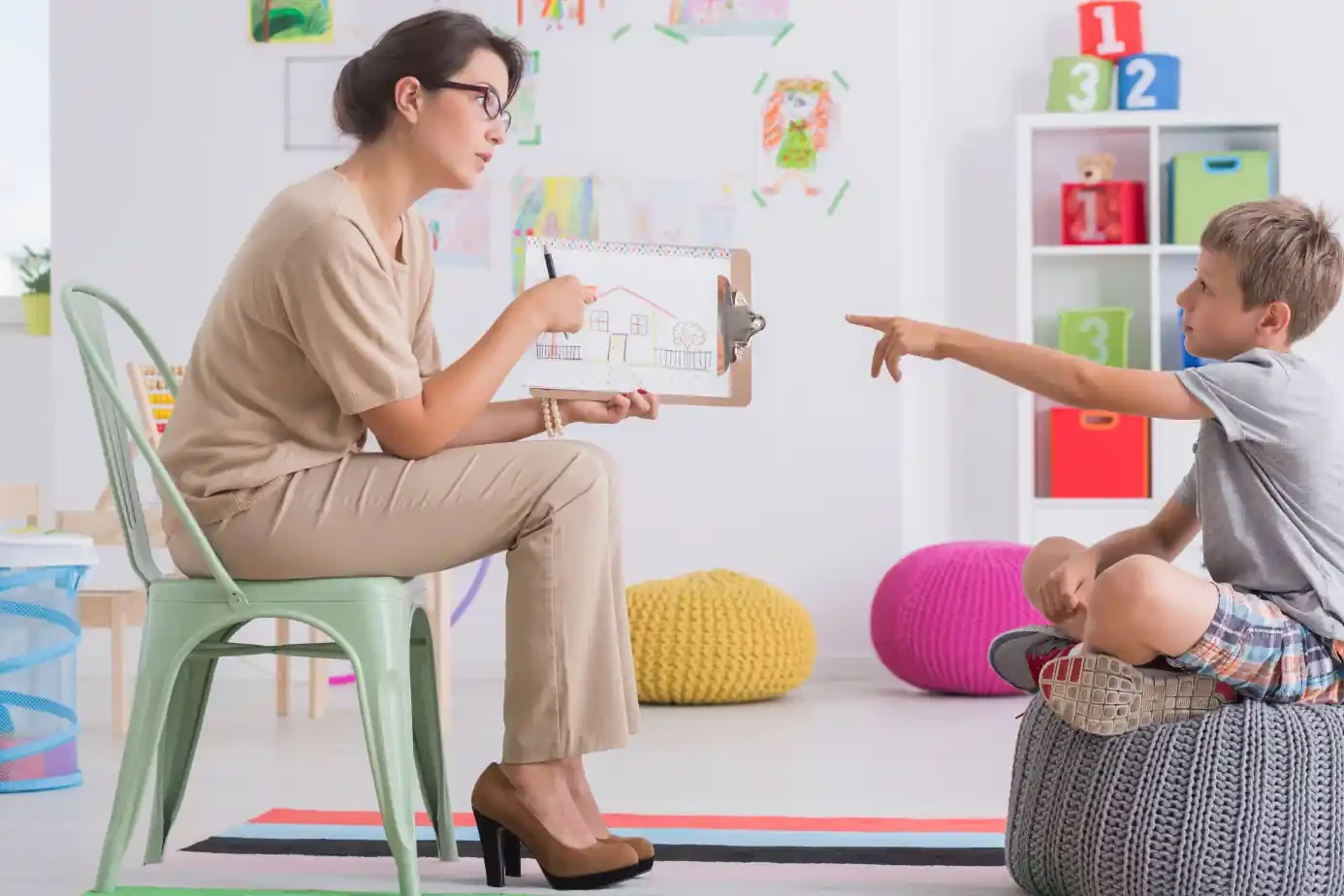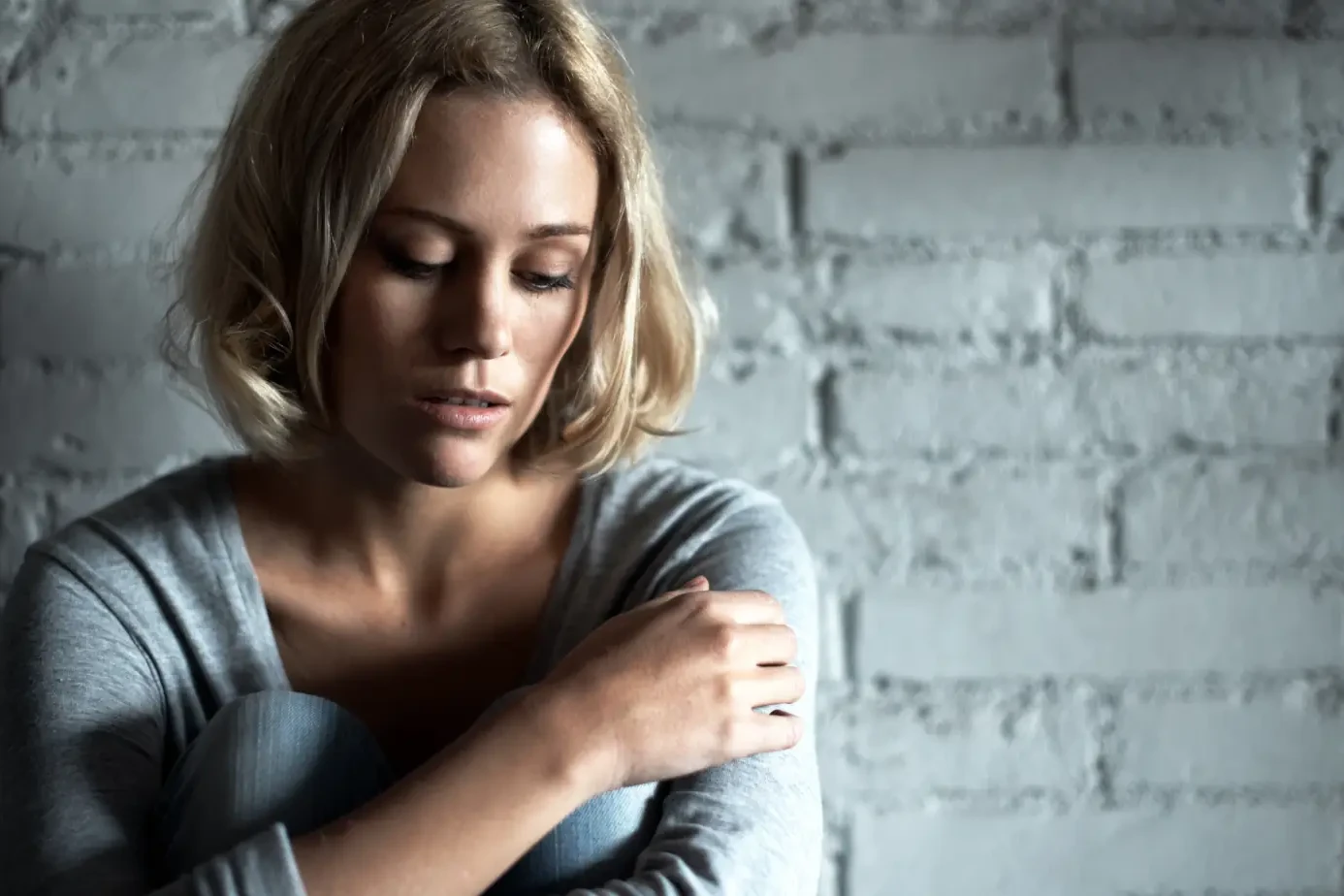Childhood shapes who we are and how we see the world. Sadly, some kids face tough times that can affect their mental, emotional, and physical health for a long time. This article will give you ways to deal with the effects of childhood trauma and take back your life.
Getting over childhood trauma is hard, but you can do it with the right help and tools. If you’ve been through abuse, neglect, or other trauma, these steps will help you heal and cope better.
Learning how to deal with childhood trauma helps you understand its effects, be kind to yourself, and find support. Let’s start this journey together. You’ll find tools and methods to heal from your past and move forward.
Table of Contents
ToggleUnderstanding Childhood Trauma
Childhood trauma is a complex and deep experience that shapes a person’s life. It happens when events make a child feel unsafe or unable to cope. This includes physical, sexual, or emotional abuse, neglect, sudden loss, natural disasters, or violence.
What is Childhood Trauma?
Childhood trauma is any event that a child can’t handle. It leaves them feeling helpless, scared, or threatened. These experiences can affect a child’s health and relationships as they grow.
Types of Childhood Trauma

Childhood trauma comes in many forms. Some common ones are:
- Physical abuse, like hitting or violence
- Sexual abuse, which is any unwanted contact
- Emotional abuse, like being constantly criticized
- Neglect, missing basic needs like food or a safe place
- Losing a loved one suddenly, like a parent or sibling
- Seeing domestic violence or other household issues
- Natural disasters or life-threatening events
Childhood trauma deeply affects a person’s life. Knowing what it is and its types helps in dealing with its effects.
Recognizing Childhood Trauma in Adults
If you faced trauma as a child, its effects can last into adulthood. Spotting signs of childhood trauma is key to healing. Look out for signs like trouble forming close relationships, being overly alert, feeling sad, anxious, or having PTSD.
Childhood trauma can make it hard to connect with others. You might struggle to trust or open up. Being always on guard is another sign, feeling like you’re always ready for danger, even when you’re safe.
- Persistent feelings of depression or anxiety
- Flashbacks, nightmares, or intrusive thoughts related to past traumas
- Avoidance of activities, places, or people that trigger memories of the trauma
- Difficulty regulating emotions or experiencing emotional outbursts
Childhood trauma can deeply affect adults, touching your mind, emotions, and body. Recognizing these signs and getting help is the first step to healing. You can start to take back your life.
Spotting the signs of childhood trauma in adults is crucial. With understanding and kindness, you can work through past challenges. This leads to a more fulfilling and strong life.
Steps to Overcome Childhood Trauma
Healing from childhood trauma is a tough but powerful journey. By following a few key steps, you can start to take back your power. Let’s look at the important steps to help you move forward.
Recognize the Trauma
The first step is to acknowledge and understand your past experiences. Let yourself feel and process the emotions tied to the trauma. It’s important to accept your experiences without judging yourself.
Be Patient with Yourself
Healing from childhood trauma isn’t a straight path. It takes patience, kindness to yourself, and a readiness to face challenges. Remember, progress might be slow, and it’s okay to have ups and downs. Celebrate your small wins and be gentle with yourself.
Reach Out for Help
You don’t have to face healing alone. Getting support from mental health experts, support groups, or close friends is crucial. Seeking help can give you the guidance and tools you need to heal.
Remember, overcoming childhood trauma is a brave and personal journey. By taking these steps, you’re empowering yourself to take back your life and find true healing.
Therapy Options for Childhood Trauma
Healing from childhood trauma is a tough but important journey. Luckily, there are many ways to help. Cognitive behavioral therapy (CBT) is one method that really works well.
Cognitive Behavioral Therapy
CBT helps people change negative thoughts and behaviors caused by trauma. It’s about making sense of past experiences and learning new ways to cope. This way, people can become stronger and move past their trauma.
CBT is a strong way to deal with childhood trauma. Many studies show it helps people heal. It helps them understand their trauma, control their feelings, and see life more positively.
If you’re dealing with trauma from childhood, think about trying cognitive behavioral therapy. It can be a big step towards healing and growing personally.
Creating a Coherent Narrative
Creating a clear story of your traumatic experiences is a key step in healing. It means putting together what happened, feeling the emotions, and understanding the experience. This helps you see how the trauma has changed you and start to heal.
It’s hard to process childhood trauma and make sense of it, but a clear story can help. This process includes:
- Recounting the events of the trauma in a chronological order, to the best of your ability.
- Identifying and expressing the emotions you felt during and after the traumatic event.
- Reflecting on how the trauma has shaped your perspective and influenced your life since then.
- Seeking to understand the context and underlying causes of the trauma, rather than just the surface-level details.
Creating a clear story helps you understand your traumatic experiences and fit them into your life. This is a key step in healing. It gives you back control and agency over your story.
Creating a clear story isn’t quick or easy. It takes time, patience, and help from mental health professionals. But with effort and kindness towards yourself, you can work through your past. This leads to a brighter future.
Healing from Childhood Trauma

Childhood trauma can deeply affect your physical and mental health. It’s important to understand the physical impacts of childhood trauma and mental health consequences of childhood trauma. This knowledge helps you find the right support and treatments for the long-term effects of childhood trauma.
Physical Health Effects
Childhood trauma can lead to chronic physical health issues later on. For example, it’s linked to a higher chance of heart disease, diabetes, and other metabolic problems. This happens because trauma triggers a stress response that affects your body in lasting ways.
Mental Health Effects
The mental health effects of childhood trauma are just as significant. People who went through trauma as kids are more likely to get mental health disorders. These include depression, anxiety, and PTSD. These conditions can really hurt your life quality and make everyday tasks hard.
It’s key to deal with the physical impacts of childhood trauma and mental health consequences of childhood trauma for your well-being. Getting help from professionals and using proven therapies can help you overcome the long-term effects of childhood trauma. This way, you can get your health and happiness back.
Helping Children Who Experienced Trauma
Supporting children who have gone through trauma is key to their healing. As adults, we can make a big difference by creating a safe space. This lets them share their feelings, grow strong, and move past their trauma.
Creating a safe and trusting environment is crucial. This means having regular routines, clear rules, and making sure they feel listened to. By understanding and showing empathy, we help them deal with their feelings and find ways to cope.
It’s also vital to look after their physical and emotional health. This could mean getting them into counseling, promoting exercise and healthy eating, and building strong relationships with caring adults. By tackling trauma’s many effects, we help them heal and grow.
Our aim is to make a place where these children feel safe and supported. With the right strategies and professional help when needed, we can greatly support them. This way, we help them face their challenges head-on.
How to Overcome Childhood Trauma
Overcoming childhood trauma is a journey that’s worth it. The first step is to recognize and acknowledge the trauma you’ve faced. This can be hard and emotional, but it’s key for healing. Be kind and patient with yourself as you work through it.
One good way to beat childhood trauma is to get help from professionals. Therapists and counselors who know about trauma can give you the tools and support you need. Support groups are also great, as they connect you with others who have gone through similar things.
Creating a story of your trauma can help you heal. By putting together the events and feelings of your trauma, you start to understand your experiences better. This can be very healing and empowering.
The path to beating childhood trauma isn’t straight. There will be ups and downs, so be patient and kind to yourself. With the right support and strategies, you can overcome the effects of childhood trauma and take back your life.

- Recognize and acknowledge the trauma you’ve experienced
- Be patient and compassionate with yourself
- Seek professional help and support
- Develop a coherent narrative of your trauma
- Practice self-care and build resilience
By doing these things, you can heal from childhood adversity and develop effective strategies for overcoming childhood trauma. Remember, you’re not alone, and with the right support, you can take back your power and live a fulfilling life.
Importance of Seeking Professional Help
Getting help from professionals is key to beating childhood trauma. Therapists and counselors are vital in helping you heal and recover. They guide you through the tough process.
The benefits of seeking therapy for childhood trauma are many. Experts offer evidence-based treatments made just for you. They create a safe space to talk about your past and learn new ways to cope.
Mental health professionals play a big part in overcoming trauma. They bring new insights and techniques that might be hard to find on your own. With a skilled therapist for childhood trauma, you can move forward in your healing journey.
It’s important to find the right therapist for childhood trauma. Look for those who focus on trauma care and know how to help people like you. They should use proven methods like CBT or EMDR.
Remember, healing from childhood trauma is hard but possible with the right support. Mental health experts can help you feel safe and strong again. Don’t hesitate to ask for the help you need.
Building Healthy Relationships
Childhood trauma can deeply affect how we connect with others as adults. It can make trust, communication, and feeling close hard. But, with the right help and strategies, we can get past these hurdles and make strong relationships.
Overcoming Relationship Challenges from Childhood Trauma
Setting clear boundaries is key to healthy relationships after trauma. This means knowing what you need and telling your partner or friends. It’s also vital to share your past but respect others’ privacy.
Good communication is essential. This means saying how you feel and listening to others. Getting help from a therapist can improve how you talk to people.
Remember, healing from childhood trauma in relationships takes time and effort. Focus on taking care of yourself, getting support, and working on your relationships. This way, you can start building the strong connections you deserve.
Self-Care Strategies
Healing from childhood trauma is tough, but self-care can make a big difference. It’s key to focus on your well-being as you heal. Let’s look at some strategies to help you handle stress, manage your feelings, and improve your health.
Mindfulness is a big part of self-care for those who’ve been through trauma. It means being fully in the moment and understanding your thoughts and feelings. Try out mindfulness exercises like meditation or deep breathing to see what helps you the most.
Adding physical activity to your self-care can really help. Exercise lowers stress and boosts your mood with endorphins. Find an activity you like, like walking, yoga, or dancing, and make it a regular part of your routine.
Progressive muscle relaxation is another great way to ease stress and anxiety. It involves tensing and relaxing different muscle groups. This can help your body release tension and lead to deep relaxation, especially for those with childhood trauma.
Keeping a healthy routine is also important for self-care. This means getting enough sleep, eating well, and doing things that make you happy. A steady daily routine can give you a sense of stability and comfort, which is helpful for those who’ve been through trauma.
Self-care isn’t the same for everyone. Try different methods to see what works for you. Be patient and kind to yourself as you explore. By focusing on self-care, you can lay a strong foundation for healing and build resilience against childhood trauma.
Conclusion
Overcoming childhood trauma is a brave and changing journey. By recognizing the trauma, being kind to yourself, and getting help, you can grow stronger. The journey is tough, but there’s hope for those who’ve faced hard times as kids.
Key steps to heal include taking care of yourself, making strong connections, and trying therapies like cognitive behavioral therapy. Childhood trauma’s effects are deep, but with the right help and methods, you can beat the challenges. You can find happiness, satisfaction, and a sense of power.
You’re not alone in this journey. Many have been where you are and have healed. With the right tools and support, you can heal and flourish. Remember, your strength and bravery will lead you to a brighter future. A future where past hurts don’t control your life or your dreams.
FAQ
What is childhood trauma?
Childhood trauma is when a child feels unsafe or can’t cope with what’s happening. This includes abuse, neglect, losing a loved one, disasters, or seeing violence. It can be physical, sexual, or emotional.
What are the types of childhood trauma?
Childhood trauma can take many forms. It can be physical, sexual, or emotional abuse. It can also be neglect, losing someone suddenly, disasters, or seeing violence. All these can deeply affect a child.
How can childhood trauma affect adults?
Adults who had trauma as kids may show signs like trouble with relationships, being overly alert, feeling sad or anxious, or having PTSD. These signs show the trauma’s lasting impact.
What are the steps to overcome childhood trauma?
To beat childhood trauma, first, acknowledge what happened without blaming yourself. Be kind to yourself as you heal, as it’s a tough journey. Then, get help from professionals and loved ones to aid your recovery.
What types of therapy are effective for childhood trauma?
Cognitive Behavioral Therapy (CBT) is very helpful. It helps change negative thoughts and behaviors from the trauma. CBT aids in processing the trauma, finding healthy ways to cope, and building strength.
How can creating a coherent narrative help in the healing process?
Making sense of your trauma can help a lot. By understanding what happened and how you felt, you gain insight into its effects. This can lead to healing and moving forward.
What are the potential long-term effects of childhood trauma?
Trauma can affect both your body and mind. It might lead to health issues like heart disease or diabetes. It can also cause mental health problems, such as depression or PTSD.
How can adults support children who have experienced trauma?
Supporting kids who’ve been through trauma is crucial. Offer a safe space, let them share feelings, keep routines, and seek help when needed. This helps them heal and grow stronger.
Why is seeking professional help important in overcoming childhood trauma?
Getting help from therapists or counselors is key. They offer treatments, support, and guide you through healing. With their help, you can learn to cope and make progress in your recovery.
How can childhood trauma impact relationships in adulthood?
Trauma can make forming healthy adult relationships hard. It can affect trust and closeness. But, with support and strategies, you can work on building strong relationships despite your past.
What self-care strategies can be helpful in overcoming childhood trauma?
Self-care is vital, along with therapy and support. Try mindfulness, exercise, relaxation, and a healthy routine. These help manage stress, control emotions, and improve your well-being as you heal.
Source Links
About The Author

This article is medically reviewed by Dr. Chandril Chugh, Board-Certified Neurologist, providing expert insights and reliable health information.
Dr. Chandril Chugh is a U.S.-trained neurologist with over a decade of experience. Known for his compassionate care, he specializes in treating neurological conditions such as migraines, epilepsy, and Parkinson’s disease. Dr. Chugh is highly regarded for his patient-centered approach and dedication to providing personalized care.
→ Book a consultation to discover which remedies suit your needs best.






